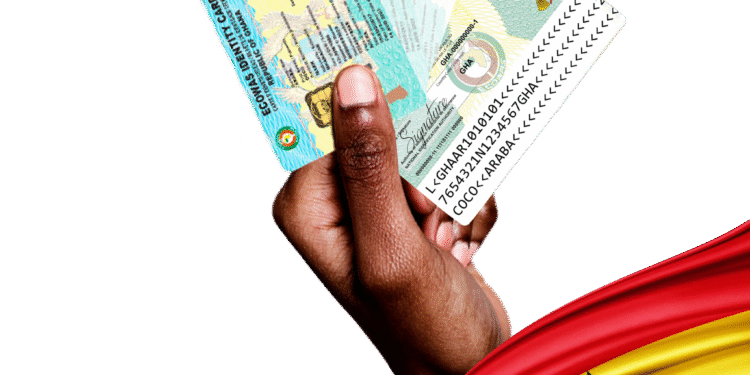Introduction
Every state needs a strong national identity to establish its foundation. This identification system determines who belongs to the community and what rights and duties each person must fulfill. The Ghana Card introduction represents a strategic initiative which aims to create a unified national identity system while improving digital governance and delivering efficient public services in Ghana. The Ghana Card functions as a secure identity document which supports various aspects of national life including healthcare access and banking services as well as voter registration and passport applications.
Recent developments indicate a rising risk to this system. The growing number of foreigners who obtain Ghana Cards through illegal procedures creates immediate concerns about the integrity of Ghana’s national identity management system. The development of this trend into a nationality crisis would result in serious damage to national sovereignty and public service distortion and threats to democratic processes.
The Strategic Role of the Ghana Card
The Ghana Card was established as an identity solution to merge multiple identity systems into one verifiable identity record for every Ghanaian person. The program has achieved rapid nationwide implementation. The Ghana Card functions as the essential document needed for sim registration, social security access, driver’s licensing, tax identification and voter eligibility among others. Through this system, citizens can fully participate in all Ghanaian civic activities.
The card system must remain restricted to citizens while granting access to legal residents who provide proper documentation. The card’s increased importance makes it an attractive target for abuse because non-citizens attempt to gain simpler access to Ghanaian economic and political systems.
Loopholes and Vulnerabilities in the System
Despite being complete in theory the national identity registration process shows weakness in actual implementation. In various rural and peri-urban areas proof of nationality depends on local declarations instead of official documentation. Birth registration does not cover all citizens and identity verification processes can be performed through unofficial channels which may rely on personal relationships.
This creates gaps that can be exploited. Reports indicate that foreign nationals particularly those from neighboring nations obtain Ghana Cards by presenting false documents and through both fake identity schemes and corrupt intermediary assistance. The issue exists but its severity has increased to the point where it now produces severe outcomes.
Implications for National Security and Governance
The entry of foreign individuals who obtain Ghana Cards creates multiple serious consequences for the country.
- Unlawful voter registration using the Ghana Card as a prerequisite threatens to undermine both electoral integrity and democratic legitimacy.
- Public services already facing challenges may become overwhelmed by additional ineligible beneficiaries.
- A compromised identity database allows transnational criminal actors to use false pretenses which creates security risks for national protection.
- Non-citizens who gain access to job markets and credit facilities and government programs through illegal means create economic injustice and foster resentment toward genuine citizens.
Policy Recommendations for Immediate Action
Immediate policy solutions require both immediate execution and strategic planning to avoid an impending crisis. The following measures are proposed:
- A thorough nationwide examination of distributed Ghana Cards needs to focus on border areas and suspicious records to detect irregularities.
- The integration between the National Identification Authority (NIA) and the Ghana Immigration Service must increase to verify citizenship and residency status through biometric checks.
- A public education initiative should teach citizens about Ghana Card eligibility requirements and the consequences of helping others register fraudulently.
- Public officials and citizens need to face legal consequences under current laws that must be updated or better enforced to prevent illegal identity acquisition.
- The implementation of digital surveillance systems combined with AI-based monitoring tools allows suspicious card applications to be checked before issuance.
- The need to stop registering adults after a set time and register only children at birth to ensure integrity of the system.
Conclusion
The development of a unified secure national identity system in Ghana faces risks from both administrative mistakes and uncontrolled fraudulent activities. The Ghana Card functions as an essential national resource that needs complete protection from any kind of damage. Modernization in Ghana requires identity systems to develop with equal strength. This present situation demands both technical and fundamental tests of national sovereignty because of its nature. The government should take action now to build trust in its identity systems which will protect the democratic future and preserve citizenship rights. The present silent crisis has the potential to develop into a complete national emergency which would occur if no action is taken.






























